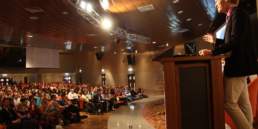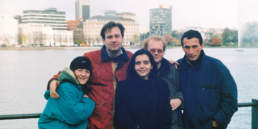How European do you feel? What does it actually mean to be European? The new AEGEE project “Where does Europe end 2.0” wants to find out. The GT spoke with the project team.
As the title suggests, this is not the first time: a decade ago “Where does Europe end” became one of AEGEE’s most successful projects. A lot has changed on this continent since then: populism, nationalism and separatism are challenging Europe every single day and threaten the peace and understanding that also AEGEE has contributed to for 35 years. But who are the people who want to make this new project happen? You know them from the Agora and many other events and discussions, because they belong to the most active people of the network. In alphabetical order: Calvin Breakwell, Ilse Driessen, Marijana Asprovska, Teodora Panus and Timo Haarman will take you on this geographical and mental journey to the borders of this continent.
Golden Times: Where does Europe end for you?
Project Team: It ends where there are no longer people who feel European, however we still need to find out where that is. Do you want to know the answer? Follow our journey at @wdee2.0!
There was a very successful AEGEE-Europe project of that name a decade ago and you want to make another edition. Why?
In the years since the first project ended a lot of changes have taken place, both inside and outside of Europe, such as Brexit, migration crisis, armed conflicts in disputed areas, rise of populism and one may even say that democracy as a system has been challenged in certain countries. This has led us as a project team to ask the question “What is Europe now and where does it end?”
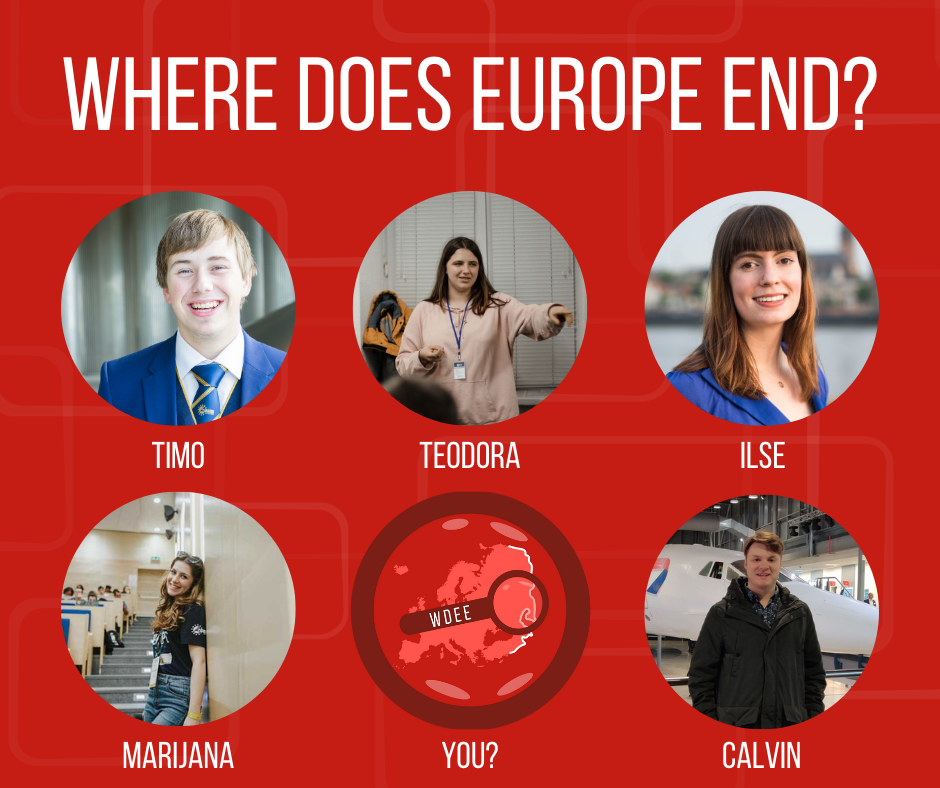
Who is in your project core team? And what motivates you to make this project?
Our team members are:
- Timo Haarman (Project Coordinator)
- Calvin Breakwell (Content Manager)
- Teodora Panus (Financial Manager & External Relations)
- Ilse Driessen (Public Relations) and
- Marijana Asprovska (Impact Measurement & External Relations).
It all started with the question “Hey, wanna do something fun?”, and now we are at “Do you want to empower some young Europeans?”, while only being more and more curious and excited about the next steps of the project!
What is your project about exactly? What are your aims?
Our project is all about the European identity and determining the factors that determine the Europeanness of a country. Three main aims were set up:
- Spreading knowledge about European identity and Europeanness.
- Empower young people to be active in Europe.
- Examine how young people perceive Europe.
We think that through these aims, we can get a better understanding of what defines Europeanness and this way attempts to give an educated answer on the main project question, “Where Does Europe End?”
So you will look at the question “Where does Europe end?” not only from a geographical standpoint, but look at what constitutes European mentality?
Yeah that’s right, we want to look at whether Europeans feel that they have a shared, interconnected history, culture or political outlook. Maybe we’re more similar than we think we are!
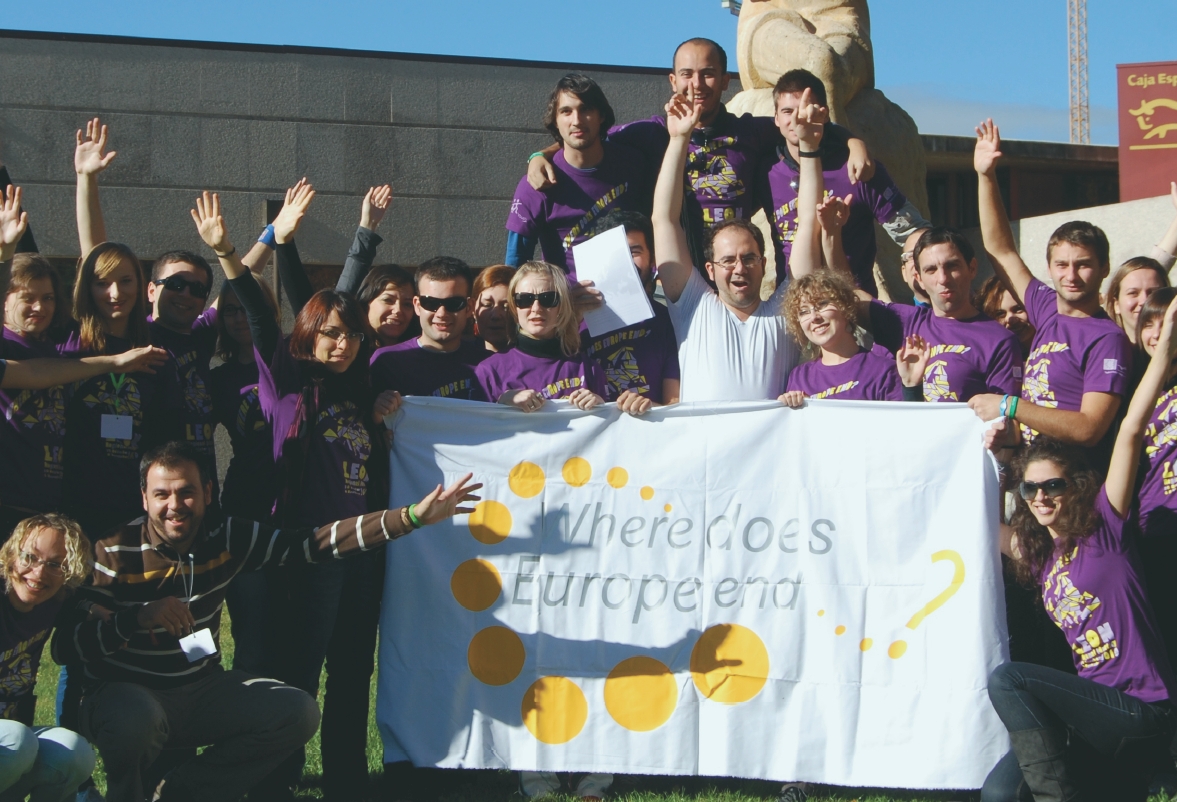
At a Network Meeting in Sankt Petersburg a few years ago, a lot of Eastern European members stated that they don’t feel really European. We also could not agree on a definition of what constitutes being European. How can your project help us understand each other better?
The first step is always knowing and self-awareness. Then comes the part of action and doing something to improve the situation. Being aware of this feeling in the East of Europe has also been something that motivated us to launch this project again, after more than a decade. We hope that our activities will produce impact to improve the situation and learn that “feeling European” can be quite an individualistic feeling of being part of something bigger. While we are aware we can’t move mountains in such a short time and with limited resources, we aim to empower young individuals who will then, hopefully, act as multipliers in their local communities.
But your project is not only about AEGEE members, but about Europe and Europeans in general, right? Will you make surveys?
This is exactly true and is what we aimed for this project in the beginning, we wanted to leave the echo chamber of AEGEE and ask ordinary young people – and this includes of course non-AEGEEans – what they think about this topic. We will be doing this by spreading a survey online and also if we get the chance to host offline events, we will have a phase with on the street surveys and also in depth interviews with various young people and maybe even young politicians.
What kind of events and activities will there be in your project? And how many?
This is definitely dependent on the way this pandemic goes. If we can safely host events and have the funding, we are planning to hold opening and closing conferences and also have the possibility to have up to five offline conferences; however, some of these may end up online. We are also planning case study trips. The events will kind of follow the same routine and schedule and just change depending on the location. For example we can have workshops on the history, politics and culture of the host country. This will be supplemented by a half day of surveying by the participants.
Can you tell more about the case study trips? What makes them special?
The intention of the CSTs is to go to places in Europe which are either not very well known or on the so called classical borders of the definitions of Europe and not only in the center, and asking the people there about their opinions on this topic as well as learning about these regions and what makes them unique. The CSTs will be hopefully fully funded by a grant and will be available to a small number of specially selected AEGEEans to take part in. The details of these CSTs will become more available when we know more about the grants.
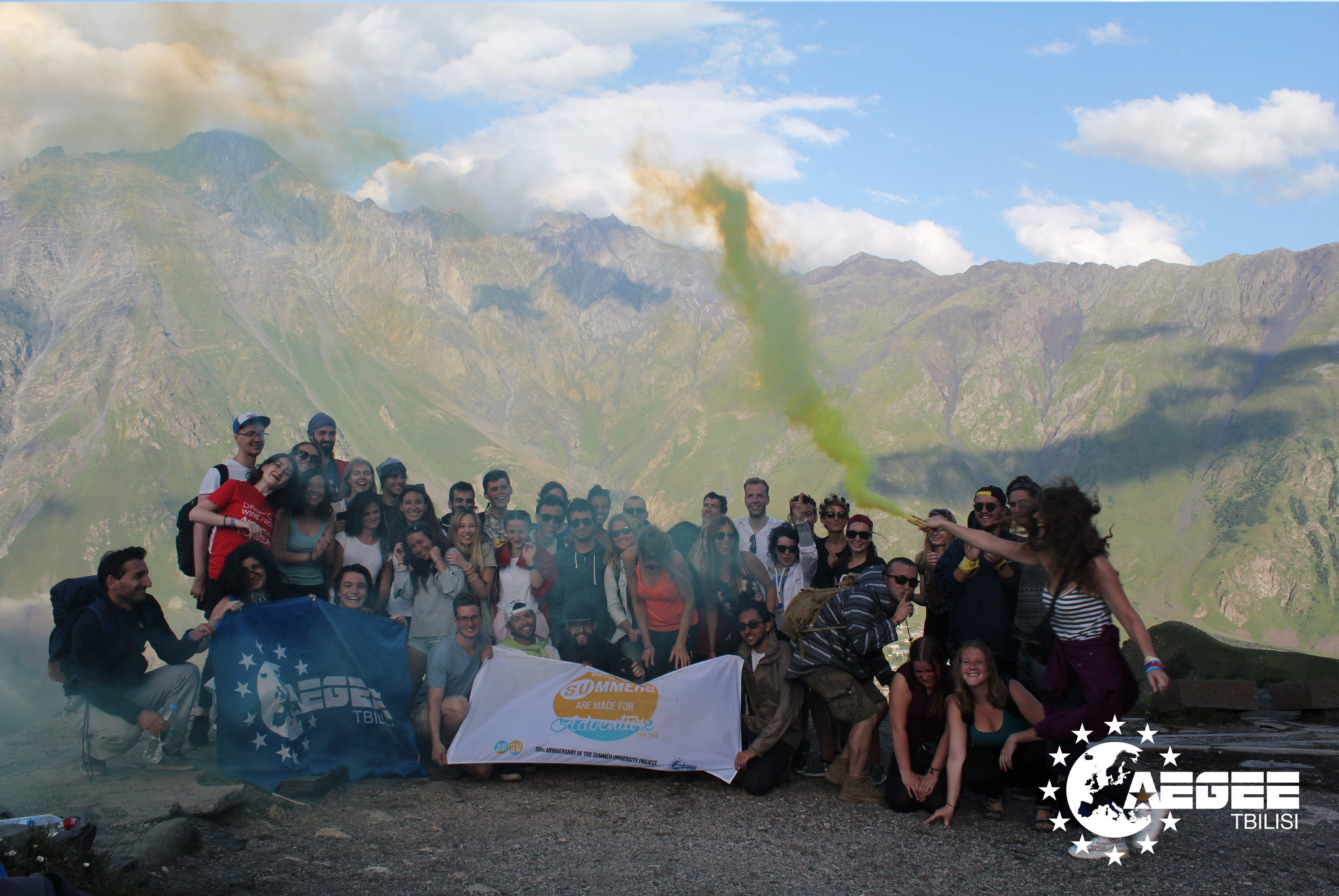
In order to organise these events, you need antennae and also cooperation with European bodies. How will you do that? Will you approach them, can they contact you?
We want to cooperate with all the European Bodies Interested in our project, since the European topic can be found everywhere in AEGEE. After all it is part of our vision, thus it is a relevant topic at any point! Regarding locals, for the start, we will cooperate with our own locals and those who gave us support in the preparation phase of the project while we set everything ready, and then slowly expand the cooperation with other locals. So if there are some interested locals already, feel free to contact us already now!
Making a project costs money, how will you finance it?
We are currently working on grant applications and other institutional funding and we want to try corporate fundraising for the local events.
So when does the project start? And when will we be able to join the first events?
The first events of the project will already take place in late 2020. Because of the current situation around the COVID-19, we don’t expect to organise any offline events yet for this year. But hopefully in 2021 we can also start the conferences and case study trips that we would like to do so much!
Where can people find out more about your project?
We will be most active on our Instagram account @wdee2.0 and our Facebook page, Where Does Europe End 2.0.
You started both pages this week and both have more than 200 followers, nice! Anything you would like to add?
One important note, at the moment we are a project initiated by AEGEEans, not an AEGEE-Europe project, which makes us quite unique. If you feel like you want to support us on our mission in any way with your local, please reach out to us by sending us a message on Facebook or Instagram. Once we get to the border of Europe, we will let you know.
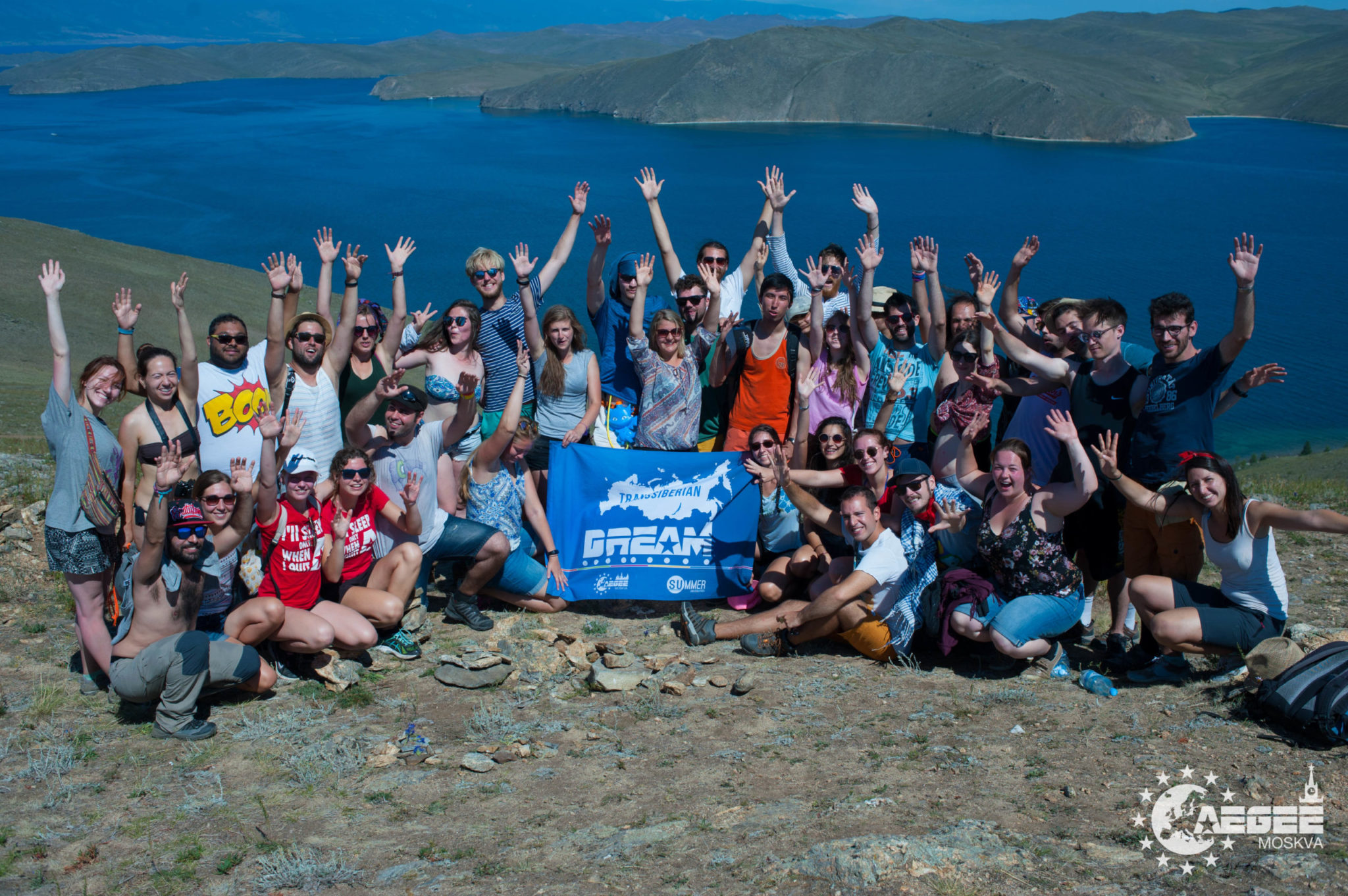
Related Posts
1st August 2019
The Gallery of All Presidents of AEGEE-Europe
Here is the gallery of all Presidents of AEGEE-Europe - with photos of every one of them. Enjoy the list!

